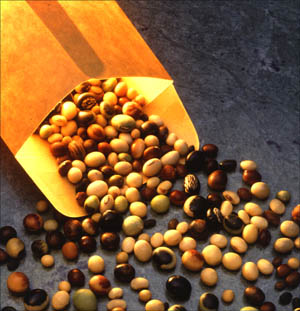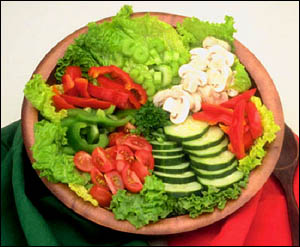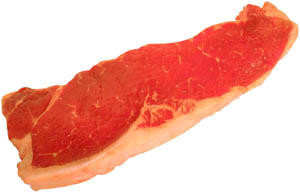Eggs and Cholesterol – Learn the Truth Behind Many Cholesterol Myths
Most people think of eggs and cholesterol as going hand in hand. However the truth about eggs in terms of their effect on your cholesterol levels is much more complex. Simply saying that eggs are bad for your cholesterol levels is part of one of the biggest cholesterol myths to date.
The good news is that this page will go in depth with the relationship between cholesterol and eggs teaching you everything you need to know.
Also you can learn more about keeping your cholesterol values controlled, maintaining an ideal cholesterol level by avoiding foods high in cholesterol, eating foods that help lower cholesterol, what can when you have high LDL cholesterol, and so much more…
Eggs and Cholesterol: Are Eggs Really All That Bad?
Let’s get started by taking a look at one of the big cholesterol myths: eggs and cholesterol…
Eggs are usually demonized as being a major source of cholesterol, but before you go throwing out all off your eggs, don’t forget that there are two parts to every egg:
The Egg Yolk Is the Part of the Egg that Contains all the Cholesterol
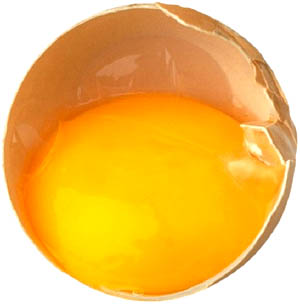 … and you will find that each egg yolk contains just under 190 milligrams of cholesterol in it.
… and you will find that each egg yolk contains just under 190 milligrams of cholesterol in it.
Doctors recommend that your daily cholesterol intake be roughly 300 milligrams if you are in perfect shape, or 200 milligrams if you are overweight, have heart problems, or have high cholesterol.
This means that eating a single egg yolk can give you more than half of your daily total cholesterol intake, meaning that egg yolks really have the potential to cause all kinds of problems.
But here is the surprise about eggs and cholesterol
However, Most People Forget About the Egg White
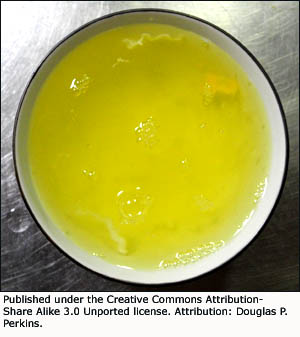 … and that is the part of the egg that really contains all the good stuff. So you see, eggs and cholesterol is not as simple as that.
… and that is the part of the egg that really contains all the good stuff. So you see, eggs and cholesterol is not as simple as that.
Most of the minerals and vitamins in the egg are contained in the egg white, and almost all of the protein is found in the white.
You will get very few calories from the egg white, and it contains next to no cholesterol.
The egg white is basically the good part of the egg, and eating just egg whites is actually one of the best ways to get a lot of high quality protein.
This Means That Switching out Egg Whites in Place of Whole Eggs Is a Great Way to Cut Back on Cholesterol and Calories
… and all the while you will still be getting all of the good stuff that eggs contain.
While you will have to try extra hard to switch out eggs from pre-prepared foods like cakes, cookies, pasta, etc., at least you won’t have to worry about increasing your cholesterol levels by eating eggs.
You can actually still bake or cook food that calls for eggs, though you will have to use two egg whites to equal one whole egg. Egg substitute is also a great way to get the bonding properties of egg with none of the cholesterol.
However, You Don’t Have to Cut out Egg Yolks all Together From Your Diet
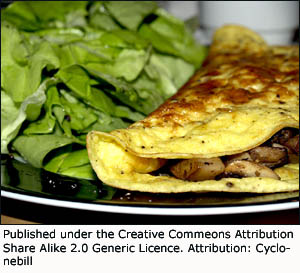 Doctors agree that eating no more than four egg yolks per week will not cause an increase in your cholesterol levels, and it can actually be good for you.
Doctors agree that eating no more than four egg yolks per week will not cause an increase in your cholesterol levels, and it can actually be good for you.
If you just can’t see yourself eating an egg white omelet in the morning, you can include egg yolks in your diet – provided you eat fewer than four egg yolks.
Let’s proceed with more information about the intricate relationship between eggs and cholesterol.
More Cholesterol Myths about Eggs and Cholesterol
Now, that’s the eggs and cholesterol myth debunked!
Let’s now take a look at a few more of the cholesterol myths floating around:
Myth 1: Cholesterol Is all Bad
Did you know that cholesterol is actually needed by your body, and that it helps to strengthen the walls of your body’s cells, regulates the hormones, and much more?
Cholesterol actually has an important function in your body, which is why your body naturally produces cholesterol.
It is when your LDL cholesterol gets out of control that problems start to set in, but your HDL cholesterol is actually a good form of cholesterol that controls your bad cholesterol. Not all cholesterol is bad, but problems will begin when your bad cholesterol gets too high.
Myth 2: Americans Have Higher Cholesterol Levels than the Rest of the World
The truth is that Americans don’t actually have the highest cholesterol levels, but they rank 83rd for men and 81st for women.
Colombian men have a cholesterol average of 244, while Israeli, Norwegian, Uruguayan, and Libyan women all have cholesterol levels of 232.
While the Americans usually have the poorest dietary habits, the popularity of health products and improved diets has helped to lower the American cholesterol average.
Myth 3: Foods That Contains Cholesterol Are Worse than the Excess Cholesterol Produced by Your Body
The food that contains no cholesterol is good for you, as it doesn’t increase the cholesterol already in your body.
However, notice that “Already in your body” part, which indicates that there already is cholesterol floating around your body.
This cholesterol is produced by your liver, and it can get out of control. Avoiding eating food that contains cholesterol is important, and you should try and avoid eating trans and saturated fats if you are having cholesterol problems.
The cholesterol in the food you eat can be dangerous, but the cholesterol produced by your body as a response to these fats is even worse.
Myth 4: Kids Can’t Have High Cholesterol
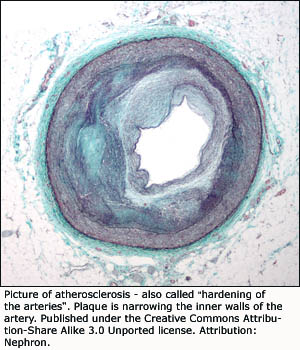 This is an interesting myth, as most people believe that only older people can have high cholesterol levels.
This is an interesting myth, as most people believe that only older people can have high cholesterol levels.
However, the truth is that anyone can have cholesterol problems, with atherosclerosis having been seen in patients as young as eight years old.
Kids that are overweight, that have poor dietary habits, and who come from families with a history of heart disorders should be careful, and they may even want to consider getting their cholesterol levels checked while they are still children. This can help them to avoid high cholesterol levels that can lead to heart related problems at a young age.
What Happens if I Have High LDL Cholesterol?
So, we now understand the truth behind these myths, but we have talked a lot about “high LDL cholesterol”. What does it mean?
LDL cholesterol is known as the “bad cholesterol”, as it is the form of cholesterol that sticks to the walls of your arteries.
These low density lipoproteins float around your body, and they find that the walls of your arteries are a great place to make their new home. They stick onto the walls one particle at a time, and they take up residence there.
Patrolling white blood cells pass by and see this ‘invader’, and they attack it. When the white blood cells attack the cholesterol particle, there is a chemical reaction that causes the particle to harden as it is being destroyed by the white blood cells. The hardening also makes it possible for more particles to stick to the wall around the one cholesterol particle, and more cholesterol particles are destroyed as more stick to the walls.
When the white blood cells cause the cholesterol to harden too much, there is a risk that the hard plaque will crack. When there is a crack in the walls of your arteries, your body quickly sends platelets to clot the artery and stop the blood flow.
However, what happens when that artery is the pathway between your heart and your brain, or another part of your heart, or your legs, or any other body part? That’s right, the blood can’t pass and thus the body part doesn’t get any blood.
If your body parts aren’t getting blood, they start to die due to a lack of the oxygen that the blood brings them.
When the cells of your brain die, this is called a stroke.
When the cells of your heart die, this is called a heart attack.
The cells of your muscles or organs can also die in what is called Peripheral Arterial Disorder.
So, all this is the result of high LDL cholesterol in your body, but what can you do to lower your cholesterol and keep it under control?
Eating to Maintain Ideal Cholesterol – Foods that Help Lower Cholesterol
Food is your worst enemy and your best ally in the war on cholesterol.
Eating the wrong foods will shoot your cholesterol through the roof, but eating the right foods will help to lower it.
Here are some of the “right” foods that help lower cholesterol and make it possible for you to maintain ideal cholesterol levels:
- Oats contain lots of dietary fiber and protein, but they contain almost none of the fats that will cause cholesterol to form.
- Beans are an excellent source of protein (eat them instead of beef or pork), and they contain lots of fiber that will prevent cholesterol from being absorbed into your body.
- Healthy oils made from flax seeds or olives can fill your body with more of the good cholesterol, and can help keep the bad cholesterol under control.
- Tea contains special antioxidants that will prevent the hardening of your cholesterol into plaque, which will help to prevent clots.
- Soy has lots of fiber, but very little saturated fat – making it one of the best cholesterol-friendly foods you can eat.
- Nuts contain healthy fats that will promote the production of good cholesterol and the reduction of bad cholesterol.
- Wine can be added to the list, as a glass or two of the alcohol per day can help to boost your body’s natural production of good cholesterol.
- Cocoa – the natural, unsweetened form of chocolate – is also on the list of foods that help lower cholesterol, as the flavonoids in the chocolate are an antioxidant that will help to lower the levels of LDL cholesterol.
- Fresh veggies and fruits contain very little fats (any fats in these foods are 100% natural and therefore healthy), and yet they are rich in natural sugars and dietary fiber that help to soak up the cholesterol.
- Tomatoes contain lots of lycopene, a natural antioxidant that has been proven to help cut back bad cholesterol levels.
Add these foods to your diet and watch your cholesterol levels drop!
Avoiding Cholesterol in Food – Foods High in Cholesterol
So, now that you know what to eat, what foods should you avoid?
Here is a list of foods high in cholesterol:
- Meat – Any meat that contains saturated fat will be converted into the LDL cholesterol which will stick to the walls of your arteries. Eat lean or cut out meat altogether.
- Dairy – Full fat dairy contains all the saturated fat that you can find in meat, so you should always try to eat non or low fat dairy products.
- Sugar – Anything that is sweet contains sugar, and sugar is turned into cholesterol very quickly. If it has to have sugar added to it, it probably means that it shouldn’t be going into your mouth.
- Fried Foods – Food that has been fried tends to contain a lot of trans fats from the frying process, and most of the fried foods that you eat will be meats (fried chicken, chicken-fried steak, etc.). Try to avoid all fried and deep fried foods.
These are the worst of the foods high in cholesterol, but it is always best to avoid foods that contain sugar, oil, or fat – unless they’re the natural fats found in e.g. nuts, oats, and avocadoes.
A Few Cholesterol Guidelines for Keeping Cholesterol Values in Check
Here are some cholesterol guidelines to help you control your cholesterol:
- Do lots of exercise, as activity helps to burn fat and cholesterol.
- Drink plenty of water to boost your body’s natural production of good cholesterol.
- Eat as much fiber as possible, especially from fruit, vegetables, and whole grains.
- Cut back on empty carbs and empty calories, but try and eat as much complex carbs as possible.
- Cut back on smoking, as it reduces your body’s production of good cholesterol.
- Lose weight if you weigh more than you should.
What Would You Like to Read Now?
10 High Cholesterol Foods to Avoid: A List of Foods High in Cholesterol
List of Foods High in Cholesterol That Raise Your LDL Levels
Go to the top of this article about Eggs and Cholesterol
Go to the homepage Cholesterol Lowering Foods

